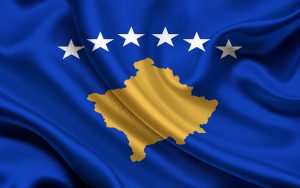
Views: 1323
“What we are really talking about is a humanitarian disaster precipitated by the cold political calculus of an autocratic leader who has pursued a political strategy against his own citizens,” said U.S. Gen. Wesley Clark, supreme allied commander in Europe.
Gen. Clark’s target was Slobodan Milosevic. Yet his words might have been used by another American general named Robert E. Lee, about another “autocratic leader” named Abraham Lincoln.
The day Clark made his statement bolstering the case for air strikes in Kosovo, the fall issue of Independent Review arrived. In a piece on Lincoln, “micromanager of the war effort,” scholar Thomas DiLorenzo describes Union tactics in the rebels’ Shenandoah Valley:
Gen. U.S. Grant “told cavalry officer Phillip Sheridan that ‘we want the Shenandoah Valley to remain a barren waste’ and famously ordered him to make sure that even a crow flying over the valley would have to pack its own lunch. … the Union cavalry went on a rampage of pillaging, plundering, burning, and the murdering of civilians that came to be known as ‘the Burning.’ As one Union soldier described the scene, ‘the atmosphere from horizon to horizon, has been black with the smoke of a hundred conflagrations and at night a gleam brighter and more lurid than sunset has shot from every verge. … The completeness of the devastation is awful. Hundreds of nearly starving people are going north.’”
Kosovo must look like that today. And what is written here is not in defense of the thuggish Milosevic or the squalid atrocities perpetrated there. But it is to raise a question: If the South’s war to break free of the Union was none of Europe’s business, why is Kosovo’s rebellion to break free of Yugoslavia America’s business?
Kosovo has belonged to Serbia far longer than South Carolina had been part of the United States when it seceded. If Lincoln had a right to launch a four- year blood bath, in which half a million perished, to recapture the South, why does Serbia not have a right to send its army to prevent the cradle of that country from being ripped away?
Comes the retort: Kosovo is 90 percent ethnically Albanian, and the majority wish to be independent of Belgrade. But a majority of Southerners wanted to be independent of a Union led by Lincoln, who had failed to win a single Southern electoral vote.
Why are we about to attack Yugoslavia? Secretary of Defense William Cohen responds, “It’s up to NATO, sooner or later, to take action. NATO’s credibility is on the line.”
But who put NATO’s credibility there? NATO is a defensive alliance, and no NATO nation has been attacked. Nor have U.S. troops been attacked or U.S. embassies bombed. Where did Cohen and President Clinton get the authority to launch air strikes on Serb soldiers operating on the sovereign territory of their own country?
Serb atrocities must stop! comes the answer, and air strikes are the way to stop them, as in Bosnia. But what ended the Bosnian war was less NATO air strikes than an invasion by a Croatian army of 100,000, which overran the disputed territory and cleansed it of Serbs, making further fighting futile. Moreover, U.S.-NATO air strikes will convince the Kosovo Liberation Army to keep fighting, adding to the war dead, and the KLA has its own history of atrocities.
In America, we used to have something called a Constitution. Before Americans could be sent to fight, Congress had to authorize a war. When did Congress authorize acts of war against Yugoslavia? And if, after U.S. strikes have “punished” the Serbs, enraged Serbs lob mortar shells onto U.S. installations in Bosnia, or blow up a U.S. embassy, or take U.N. hostages, or bring down a U.S. airliner, will Clinton and Congress accept responsibility for that?
The pictures from the latest atrocity in Kosovo were disgusting, but one could find equally disgusting photos from countries like Algeria, where the victims of five years of massacres number in the scores of thousands. Yet no one has called for air strikes there, though Algiers is closer to the United States than Belgrade.
It was pictures of a burning Buddhist monk that caused JFK to support a coup that Americanized the Vietnam War. It was pictures of starving children that sucked us into Somalia. It was pictures of the dead in the Sarajevo market, from a mortar shell, that drew us into our open-ended occupation of Bosnia that has cost $10 billion.
“It is unworthy of a great state to dispute over something which does not concern its own interests,” Bismarck observed, with the Balkans in mind. Words worth pondering, as we set out to do justice and punish wickedness with missiles and smart bombs.
Originally published on 1998-10-2
Author: Patrick J. Buchanan
Source: Buchanan.org
Origins of images: Facebook, Twitter, Wikimedia, Wikipedia, Flickr, Google, Imageinjection & Pinterest.
Read our Disclaimer/Legal Statement!
Donate to Support Us
We would like to ask you to consider a small donation to help our team keep working. We accept no advertising and rely only on you, our readers, to keep us digging the truth on history, global politics and international relations.
FOLLOW US ON OUR SOCIAL PLATFORMS











